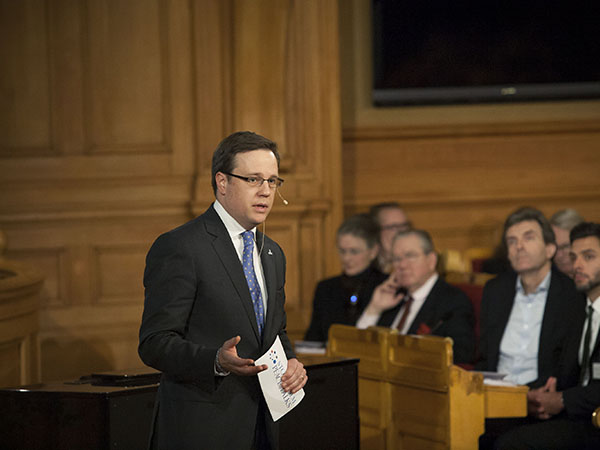The 2015 Nobel Peace Prize: What can we learn from Tunisia? Message from our Director-General

On 10 December the Tunisian National Dialogue Quartet received the 2015 Nobel Peace Prize. At a time when so much of the world is fraught with instability, it is important to look at how these four organizations were able to play such a catalytic role in keeping their country on the path to peace.
What can we learn from the Tunisian process to help us in other troubled parts of the world?
First and foremost, civil society plays a critical role in peacebuilding. As the euphoria of the “Jasmine revolution” of 2011 that unseated long-time President Ben-Ali wore off, a profound sense of disillusionment set in. It appeared to many that the promise of the revolution – national unity and economic growth, an end to corruption and to the extreme centralization of power in the hands of the few – would not be realized. Dialogue among elite politicians was not providing solutions and the country was slipping into a new crisis.
It took organizations deeply rooted in the social structures and fabric of society to rally new energy and to reintroduce a sense of legitimacy into the political process.
It is worth staying with this point for a moment. Civil society organizations confer this sense of legitimacy when they represent the concerns of the larger society, including grassroots and marginalized communities. More than governments, they can reach out and engage the public in inclusive dialogue processes that connect national level issues to the local realities of people’s daily lives. But such engagement must be sustained long after a power-sharing or peace agreement is signed, through constitutional and electoral reforms and their implementation. In this way, civil society can help, as in the case of Tunisia, overcome stumbling blocks that inevitably arise during what is most often a tumultuous and winding transition from autocracy to democracy.
But civil society engagement cannot ultimately be productive without capable and responsive state institutions. In some cases, they must be built; in others they must be strengthened or reformed. Most importantly – be it the parliament, the courts, the security forces and other government agencies – they must become more legitimate in the eyes of the people they are meant to serve. This includes creating avenues and mechanisms for involving civil society in political decision-making.
It is not insignificant that the Tunisian Quartet includes two workers’ unions that represent a large segment of the country’s economy. Unity could well unravel if the country fails to address economic grievances. Statebuilding efforts, as in Tunisia, must go hand in hand with economic development in order to transform hope in the future into trust in the present.
While much can be learned from the Tunisian example, we cannot simply transpose lessons from one country to another. Every context is different and requires home-grown solutions. But it can inspire those of us in the international community to think differently about our approaches to peacebuilding.
As we look at conflict-ridden Syria and Yemen, but also at countries struggling to emerge from cycles of violence such as Mali and South Sudan, we must acknowledge that the paths to peace will have to be defined and followed by each society at its own pace. As the international community, we must offer partnership and support in ways that recognize the long-term nature of inclusive peacebuilding and the critical role that civil society organizations can play in bringing the aspirations and energy of society into the process.
